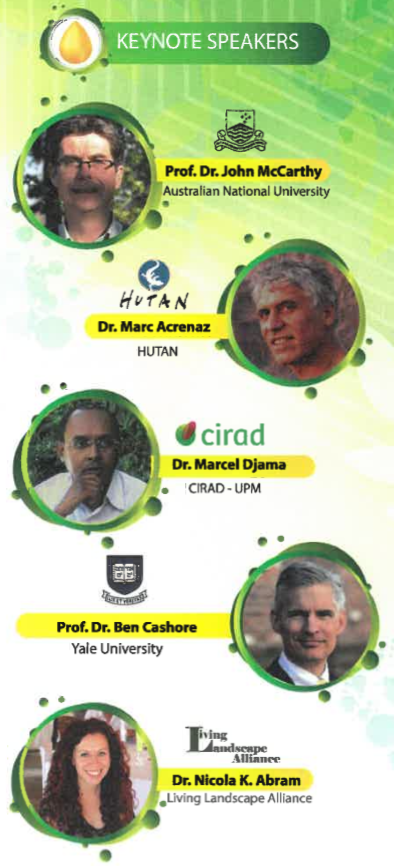Pulse Grande Hotel
September 22, 2019 – September 24, 2019
“SCALING UP SUSTAINABILITY: DEBATTING LANDSCAPE APPROACHES TO ACHIEVE SUSTAINABLE AGRICULTURE.”
Southeast Asia is home to 20% of the world's tropical forests. This region also has one of the highest deforestation rates in the world as a result of urbanization, extractive activities and the expansion of commercial agriculture. This situation is particularly alarming in Indonesia and Malaysia, where the development of oil palm and other commodities are challenging forests conservation. However, agriculture and other drivers of deforestation are also key components of economic development, providing jobs and incomes to rural population.
Over the last twenty years, many initiatives emerged to reconcile the imperatives of economic growth, social development and the preservation of natural resources.This has resulted for example, in the rise of voluntary sustainability standards developed by value chain stakeholders and NGOs to implement best practices in commodities production. Governments have also shaped their own sustainability standards and sometimes toughened their regulations, while a growing number of multinational corporations are pledging to source only “zero deforestation” products.These sustainability initiatives proliferation shows the increasing recognition by governments, supply chain actors and consumers of the need to mitigate agriculture expansion negative impacts. But one can also observe that this proliferation is contributing to a fragmented regulatory framework, compromising regulation efficiency and encouraging producers’ opportunist forum shopping strategies. Moreover, sustainability standards are based on sectoral or commodity specific approaches that have been recognised as inadequate to tackle regional development and environmental challenges.
To address these limitations, “landscape approaches” are increasingly promoted as a toolkit organising multiple land uses at territorial scales. As a conceptual framework, it provides stakeholders with the tools needed to organised land allocation and management through holistic land use planning strategies. This approach involves the participation of all users of the territory as well as local governments and value chain actors to achieve common social, economic and environment goals.Grounded on science-based decision-making process and participatory approaches, landscape approach is open to multidisciplinary perspectives. As an academic topic, it covers fields as large as sustainability studies, spatial analysis, regulation and governance to address land uses, land cover and landscape evolution, land policy and planning, as well as various disciplines from ecology to spatial analysis, geography, forestry, agronomy, economy, social sciences, law and political sciences.
The CSSPO Conference 2019 invites scholars and practitioners from different disciplines to address these challenges.
The Organisers
This scientific event is part of the annual international conference of the “Consortium Studies on Smallholders Palm Oil” (CSSPO). CSSPO is composed by researchers from three Indonesian universities (Universitas Sumatera Utara, Universitas Jambi and Universitas Malikussaleh), a university from Malaysia (Universiti Putra Malaysia) and a university from Thailand (Prince Songkla University). Challenges and opportunities associated to the sustainability turn in agriculture – particularly in regard to smallholders’ oil palm growers – are the heart of the CSSPO research agenda.
The conference is hosted by Universiti Putra Malaysia (UPM) and organized by UPM in association with the French Agricultural Research Centre for International Development (CIRAD).

 |  |  |  |  |  |  | |







